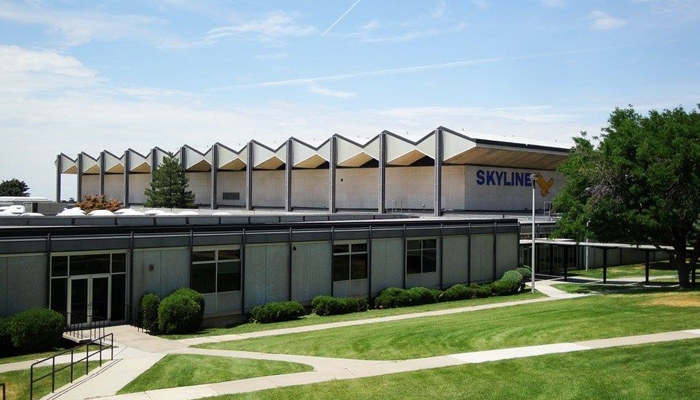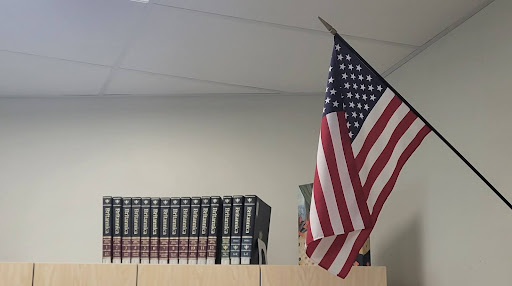Controversial Implementation of “PB-Hell” Continues
Within the Granite School District, the term “Proficiency-Based Learning”, more commonly known as PBL, can bring up a lot of reactions and interpretations. The controversial grading system has become gradually integrated into curriculums over the last five years, though the time that teachers in every school have been using them varies greatly. At Skyline, nearly all subjects have been brought under the PBL blanket, to the great satisfaction of district leadership, but not so much to some teachers.
In the way it is used at Granite School District, the changes between the “traditional” grading system and PBL mostly concern late work and tests: in PBL, only assessments are counted into a student’s final grade, and any other assignments are considered “gateway assignments”. While students are supposed to be given feedback on these assignments, they are never considered “late” and can be resubmitted an infinite amount of times. Similarly, tests can also be retaken as many times as the student wants, provided that all of their gateway assignments are completed and the student proves that they can now fill the previous gaps in their learning.
Teachers at Skyline who teach PBL classes or have witnessed the rollout of PBL over the school, have a wide range of opinions about the system. Ceramics teacher Nathan Krueger explained that he has been using PBL even before the district officially started to encourage teachers to switch over, because it provides clearer standards that he can hold students to while still prompting them to be creative. “[Grading] is just about creating really good standards that allow the students to demonstrate mastery over those particular standards: so it’s something as simple as, Is the piece even? Is it symmetrical? And then as it becomes more or less symmetrical, then you have achieved the standard or not. But then, symmetry is really easy to be creative around.”
English teacher David Moore also agreed with this, explaining that it can be easier to teach with PBL because of its streamlined focus on the standards: “Teaching before PBL, we would just decide what we thought was important and that’s what we would emphasize, and that’s what we would create all our curriculum about.” However, PBL forces teachers to make all of their instruction and assignments center on the standards.
A great drawback of this system, however, is that teachers are supposed to be so completely focused on academics that they can’t score students on anything else. Moore pointed out that requiring students to, for example, acquire a copy of the book being studied in class, is not technically allowed, because it doesn’t measure academic knowledge in any way. However, having access to the book would be crucial for study, and it would be beneficial to be able to encourage students to get a copy.
Another similar factor is late work, which doesn’t exist under PBL. Instead, students are allowed to submit homework whenever they are able, and can also resubmit their assignments indefinitely. English teacher Jill Thackeray, who teaches IB and AP classes to 11th and 12th graders, said that the attitude of laxity with deadlines would be seriously detrimental to students in the long run. “Because of PBL, plus the pandemic, students wanting to turn things in late and then teachers leaving Canvas assignments open indefinitely, and having these wishy-washy deadlines, I saw a direct correlation between my students passing the AP exam, and late work. Students who consistently turned in work late did not pass the AP exam. I had the worst pass rates last year than I have had in my entire 22 years of teaching AP.” She went on to add that she expects students who move onto college will have a rude awakening when they find that professors will not be as lenient with their deadlines except in extremely extenuating circumstances.
The combination of the constant stream of students turning in assignments much later than the deadlines, the expectation to give feedback to every student, and the general system of grading with the proficiency scale culminates to a significant increase in teachers’ workloads. Thackeray talked about the effects of adopting PBL on her colleague, Robin Bucaria. “It’s added exponentially to her workload, and it’s put such an amount of stress on her that it’s not good for her health. […] So much that teachers do, that the general public doesn’t understand, is not compensated financially.” A proposed solution to the issue of late work is the introduction of a new proficiency scale engineered specifically for citizenship, but from what has already been seen, it is possible that this “solution” may just consume more time that teachers don’t have.
Most teachers seem to agree that, in principle, Proficiency-Based Learning could be beneficial to students, but the way it is being used within the district and applied to classrooms needs improvement. Transitioning from “traditional” grading methods to PBL remains difficult and is often left up to the interpretation of teachers, leaving variance between subjects in what is eventually supposed to be a schoolwide system. Teachers like Mr. Moore, who don’t have much experience teaching with PBL, are still fumbling with how to best adapt to the system: “I take an assignment that I’ve been using in the past, and I have to find one of the standards that seems to fit it, if possible. And then I have to adapt the assignment, by adding the standards and sometimes adapting the instructions and manipulating things, so it’s time-consuming. But then I also don’t think that I’m doing it… in a way that takes full advantage of the benefits that PBL has to offer. I think if I were starting to create things brand-new that they would be much better, and they would be much closer adapted to what PBL is looking for.” If the district continues to push PBL, it will likely be a long and laborious transition for everyone involved, and it is unclear whether it would be worth it. Thackeray, a strong opponent to the PBL system, called it a “failed experiment”, but nothing is certain yet.



